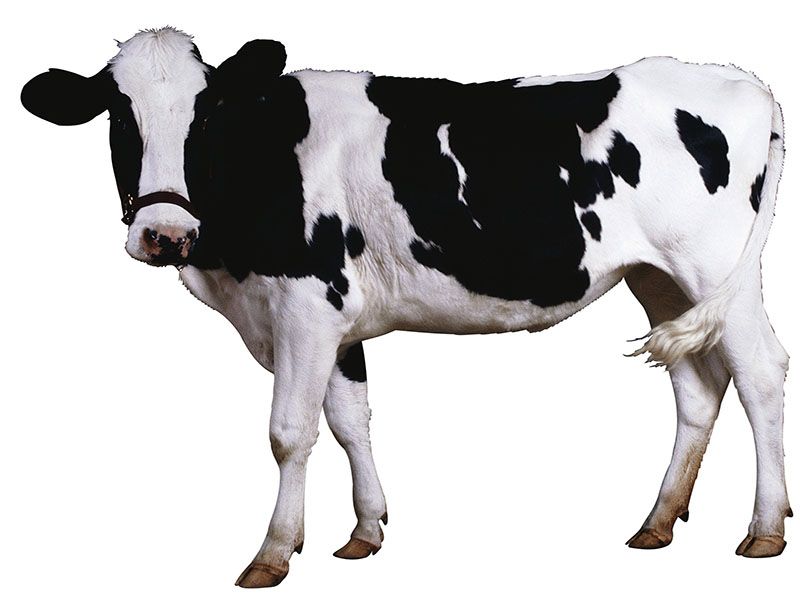
Steaks and burgers could be killing thousands of Americans each year, but in a way most people wouldn’t expect — via air pollution.
That’s the conclusion of a new study estimating that airborne particles generated by food production kill nearly 16,000 Americans each year. Pollution related to animal products — most notably beef — accounts for 80% of those deaths.
“What we eat affects not only our own health, but the health of others,” said researcher Jason Hill, a professor of bioproducts and biosystems engineering at the University of Minnesota in St. Paul.
Farming generates pollutants in numerous ways, but Hill’s team focused specifically on its role in fine-particle pollution — tiny substances suspended in the air that can be inhaled deeply into the lungs.
That can be especially dangerous for people with existing heart or lung conditions, and the World Health Organization says exposure to dirty air kills roughly 7 million people worldwide each year.
Farming activities like plowing fields, fertilizing crops and spreading and storing manure all help generate fine-particle pollution.
Growing plant foods creates some pollutants, but not at the level of animal products. There’s not only the livestock themselves — think manure — but the crops grown to feed them, Hill said.
Raising cattle requires the most resources and churns out the most pollution.
Accordingly, the study found, air pollution related to red-meat production caused the most harm: Per serving, its impact on deaths was seven times that of poultry, 10 times that of nuts and seeds, and at least 15 times that of other plant foods.
“Red meat has such a large impact that reducing our intake of that alone could make a big difference,” Hill said.
Gidon Eshel, a researcher not involved in the study, agreed.
Beef production “exerts, by far, the most environmental and health consequences,” said Eshel, a research professor at Bard College in Annandale-on-Hudson, N.Y.
It’s been well known that agriculture contributes to air pollution, Eshel said, and that air pollution contributes to deaths.
But the new findings, he said, show “crisply and numerically” how the nation’s collective diet contributes to deaths in the population.
The study — published May 10 in the Proceedings of the National Academy of Sciences — was partly funded by the U.S. Environmental Protection Agency (EPA) and U.S. Department of Agriculture.
It drew on EPA emissions data to gauge the impact of different farming activities on U.S. counties’ air quality. The researchers then used statistical models to estimate the effects of fine-particle pollution, from various agriculture sources, on annual deaths nationwide.
The verdict: Agriculture generates enough dirty air to kill about 18,000 Americans each year. Specifically, ammonia from livestock waste and fertilizer was a major culprit, the researchers said.
Of those deaths, the vast majority — almost 16,000 — were related to food production, mainly meat, poultry and dairy.
To take a more positive view, Hill’s team also estimated the impact of potential solutions.
They found that certain farming measures — such as improving fertilizer application — could prevent some deaths.
But changes to the American diet would reap far greater benefits: If veganism and vegetarianism swept the nation, most of the described deaths could be avoided, the researchers found.
However, Hill stressed, “you don’t have to become an absolutist.”
His team projected that “flexitarian” eating would prevent a large number of deaths, too. That refers to diets that are largely plant-based but allow some animal products in moderation.
Given the large effects of red meat, Hill noted, even declaring “meatless Mondays” could make a difference.
But would there be ill health effects from eschewing animal protein?
Eshel said there’s “not a shred of evidence” that people need animal protein to be healthy — but a “mountain of evidence” supporting the benefits of plant-based diets.
In a 2019 study, Eshel estimated that if all Americans traded in meat for plant alternatives, it would make a big dent in greenhouse gas emissions, and use of crop lands and nitrogen fertilizers.
And with sources like soy and buckwheat supplying protein, the study found, there would be no skimping on nutrients, either.
But Eshel also acknowledged that a national embracing of veganism is unlikely. He said that “jettisoning” beef, and replacing it with healthy plant foods, would be a good step in itself.
More information
The Academy of Nutrition and Dietetics has advice on building healthy vegetarian diets.
SOURCES: Jason Hill, PhD, professor, bioproducts and biosystems engineering, University of Minnesota, St. Paul; Gidon Eshel, PhD, research professor, environmental and urban studies, Bard College, Annandale-on-Hudson, N.Y.; Proceedings of the National Academy of Sciences, online, May 10, 2021
Source: HealthDay

Leave a Reply